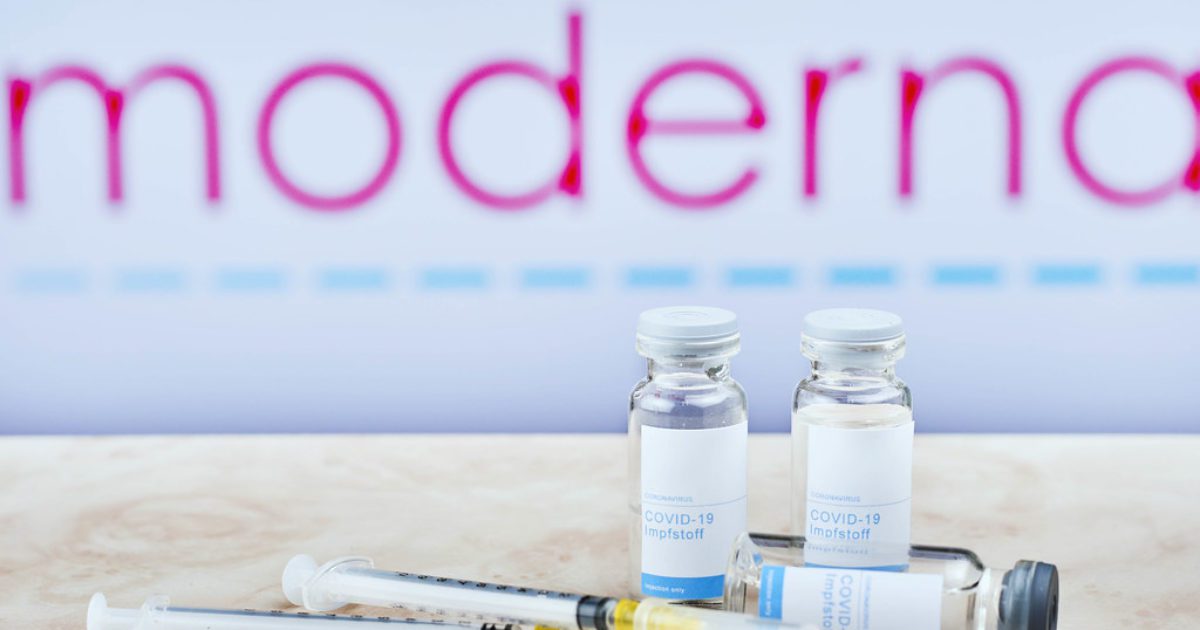“A June interview with the Moderna Chief Medical Officer has surfaced where he concedes the spike protein from the COVID vaccine can interact with and damage heart cells,” The Counter Signal reports.
Dr. Byram Bridle, a defamed viral immunologist and associate professor at Guelph University in Ontario, Canada, warned humanity about the experimental shot’s spike protein over a year ago.
Can we say Dr. Bridle is vindicated following the admission from Moderna's CMO?
Dr. Bridle responded to the comments on his substack.
“Are people going to accuse the manufacturer of spreading misinformation?” he asked.
Manufacturer confirms what Dr. Bridle, and many other courageous Professionals, were attacked for warning us about 1.5 years ago. #StoptheShots
Moderna's CMO Believes Spikes from the mRNA Vaccine Get to the Heart https://t.co/m3prvTLyZl— Daniel Bulford (@BulfordDaniel) September 19, 2022
The Counter Signal reported:
In June of 2021, Bridle expressed concerns that the spike protein in the COVID vaccine could travel throughout and damage the body.
Subsequently, “my life exploded into a storm of harassment, accusations, and censorship,” Bridle said.
Bridle is still unable to practice in his research lab at Guelph University. He must work from home and is an outcast at his university.
A slanderous website was launched to pop under search results for Bridle. The website claims “the mRNA vaccine is injected into the upper-arm (the deltoid) muscle. There is no spike protein in the mRNA vaccines.”
Canadian health officials accused experts who raised safety concerns about the COVID vaccine of spreading disinformation. Those claims went largely unchallenged by mainstream media, who pushed for more lockdowns and restrictions in their questioning.
Bridle said being vindicated with the Moderna admission comes with “mixed emotions” since he’s suffered “irreparable damage” to his career and reputation.
“I wonder if the naysayers will listen to the COVID-19′ vaccine’ manufacturers as they now confirm this 1.5-year-old message.”
The admission from Dr. Paul Burton, Moderna's Chief Medical Officer, is found in a June interview with Yahoo Finance.
Moderna's chief medical officer Dr. Paul Burton, in a separate interview Tuesday with Yahoo Finance, said the risk of myocarditis could have to do with an interaction with the spike protein — which plays a role in the basis of all Covid vaccines — and heart muscle cells.
"We know so much more about myocarditis today than we did a year ago. I do believe that it is the spike protein....that either causes a little bit of direct damage to the heart, or antibodies that are produced that react with the heart cells," Burton said.
Dr. Bridle wrote in COVID Chronicles:
Moderna knows so much more about the myocarditis caused by their COVID-19 ‘vaccine’ by virtue of having experimented with it for a year in the context of a global rollout.
As a viral immunologist with deep expertise in vaccinology, I was able to predict these mechanisms based on a limited array of pre-clinical data that were available almost one-and-a-half years ago. It is possible to follow the science and see where it will lead.
Every health regulatory agency should have immunologists with expertise in vaccinology and pre-clinical research methodologies. If they did, they would have been able to predict this problem well before the public rollout. They had the requisite data in hand. In contrast, I had to dig deep to obtain it.
The peer-reviewed scientific literature is also starting to confirm that the spike protein encoded by mRNA vaccines gets to unexpected and unwanted sites in the body, like the heart, where it causes myocarditis that is more severe and long-lasting than what the so-called narrative purports.
In short, likely mechanisms of COVID-19 vaccine-induced myocarditis include:
- The mRNA vaccines get distributed to the heart where they program cells to manufacture and express the spike protein, thereby making the cells targets for spike-specific antibodies and T cells.
- Some spike proteins may get into circulation and cause direct damage to cells in the heart when they bind to the ACE-2 receptor.



Join the conversation!
Please share your thoughts about this article below. We value your opinions, and would love to see you add to the discussion!